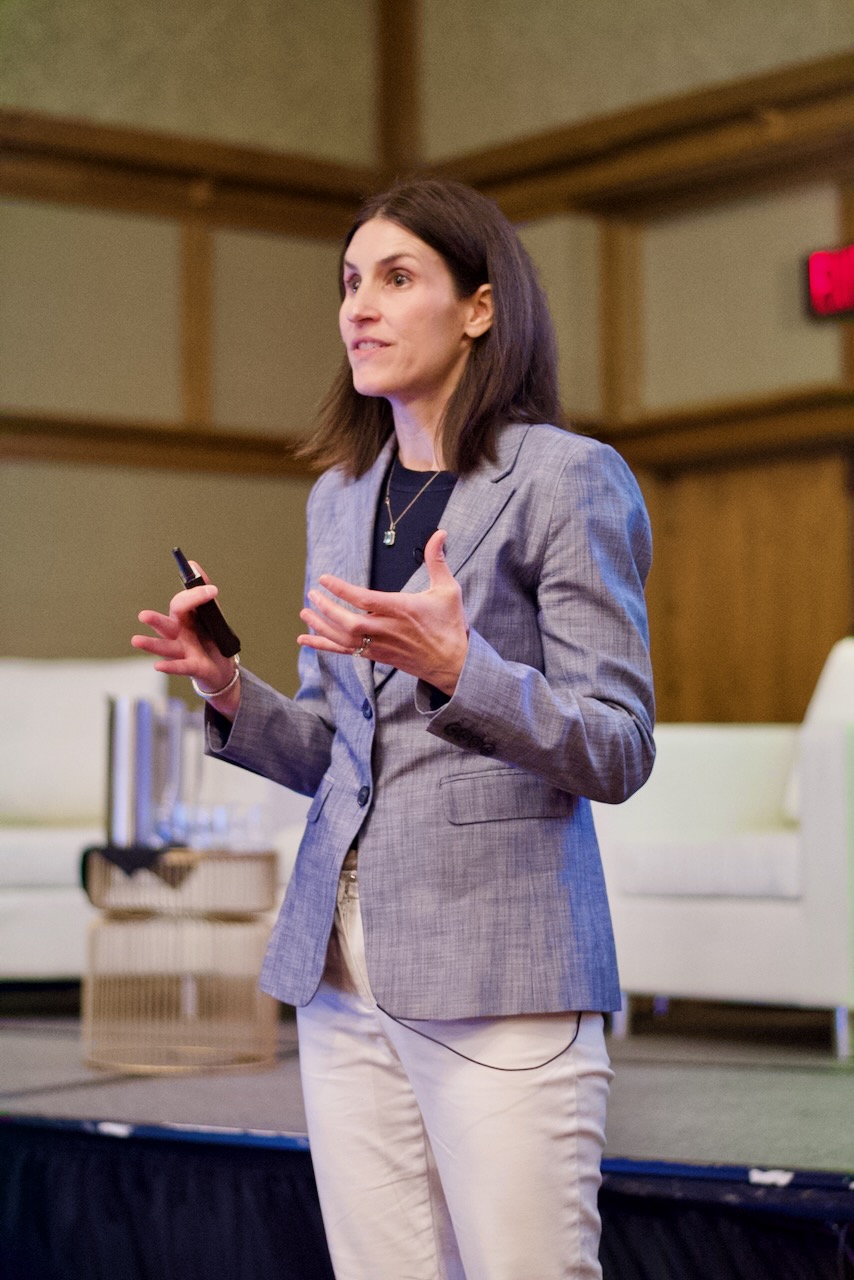Cox Automotive Battery Expert Outlines Evolving EV Market
June 20, 2022
By Jeff Kelley for VADA.com
Complex and dynamic variables are impacting the electric-vehicle market, but one thing is certain: Sales are charging up and aren’t slowing down.

Lea Malloy, head of Electric Vehicle Battery Solutions at Cox Automotive Mobility, talks EV evolution with attendees at the 2022 VADA Annual Convention on Monday, June 20, 2022, (Photo: Sean Toler)
“We know without a doubt by 2030 that sales of EVs will increase at least seven times,” Lea Malloy, head of Electric Vehicle Battery Solutions at Cox Automotive Mobility, old attendees at the 2022 VADA Annual Convention on Monday.
Driving adoption is both supply, with “extreme commitments to support electrification” by most every OEM, and demand, with more educated and environmentally conscious consumers who are being presented with greater vehicle range and better body styles.
Sales of internal-combustion engines peaked in 2017 and have been declining, which will not change course. Still, she said, global events such as COVID-19, semiconductor shortages, and the war in Ukraine have impacted the supply chain and, therein, sales of EVs.
In her second year speaking at the Virginia convention, Malloy hit on several themes impacting EV growth. Among them:
- Powertrain: At the moment, Malloy noted, the powertrain represents 37% of the cost of an EV, compared to just 13% of a traditional ICE engine-powered car or truck. EVs cost about $12,000 more than their combustion peers, which “highlights the criticality of the used market to drive EV growth.”
- Valuation: While combustion engines are valued largely by the odometer reading, EVs re valued in a used sale by battery health. Residual valuation calculations are evolving because banks, lenders, and insurers are short on datasets about battery health.
- Salvage: There are established processes to support recycling or destroying a traditional vehicle at the end of its life. But batteries cannot go in landfills, and a lack of cohesive federal laws makes answers to salvage questions murky at the moment.
Malloy also has her eyes on battery chemistries. Due to volatility in metals pricing, there has been a 25% increase in the cost of nickel manganese cobalt (NMC) batteries over the past few months. Meanwhile, pricing for lithium ion phosphate (LFP) batteries remain five times cheaper. “The industry is again adjusting to what chemistries are best suited for their electric vehicle models,” she said.
Cox research shows the top barrier to consumer EV adoption remains lack of access to charging infrastructure, and even if federal incentives will create thousands more charging stations along highways and in communities, “we also know that the majority of charging takes place at the home or office,” Malloy said.
Malloy told dealers their role is “highly influential in the purchase of an electric vehicle.” About six in 10 EV buyers visit a dealer to learn more about the technology. About 80% of consumers say the visit influenced the final decision in their purchase.
There are also implications for dealers in preparing for EV adoption. Notably: training staff, who need to understand EV performance and specs, state and federal incentives, total cost of operation, and access to charging infrastructure. Fixed ops teams also must be trained to handle high-voltage batteries, considered Class 9 hazardous materials. Also required investments for handling batteries are pallet jacks, lifts and bridge cranes, and personal protective equipment.
And, Malloy said, EVs require “more maintenance events” than combustion engine cars. Batteries require new types of diagnostics, wiring, and repairs. Batteries are also heavy, which equates to more tire-service opportunities.
“It all goes back to the battery,” she said. “There’s a whole bunch of opportunity in support of that battery pack.”
Cox Automotive Mobility provides dealers with tools to better assess battery health as part of the valuation process. The company believes in a “closed loop ecosystem” for EV batteries and support practices that extend battery life and proper disposal at the end of them.
Cox Automotive is “passionate about the electric vehicle,” Malloy said. “We believe that the future of transportation is defined by electric vehicles in the movement of goods, services, and people.”
